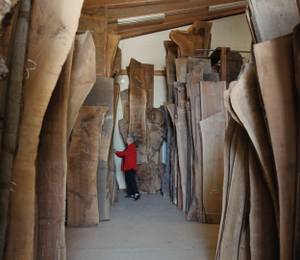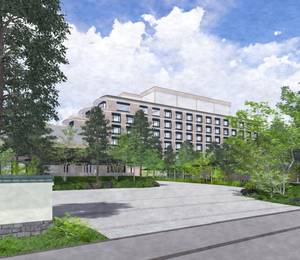Singapore – The Building and Construction Authority (BCA) in Singapore projects the total construction demand in 2021 (i.e. the value of construction contracts to be awarded) to range between S$23 billion and S$28 billion. This is an improvement from the S$21.3 billion (preliminary estimate) in 2020 during the ongoing COVID-19 pandemic.
The public sector is expected to drive the construction demand in 2021, to between S$15 billion and S$18 billion with an anticipated stronger demand for public housing and infrastructure projects. Some of the upcoming major public sector projects scheduled to be awarded this year include various contracts under the Jurong Region MRT Line, the Cross Island MRT Line Phase 1 and the Deep Tunnel Sewerage System Phase 2.
Private sector construction demand is projected to be between S$8 billion and S$10 billion in 2021. BCA projects the bulk of private sector construction demand in 2021 to comprise development of the remaining en-bloc residential sites, major retrofitting of commercial developments as well as construction of high-specification industrial buildings to meet business needs.
Due to the impact of the COVID-19 pandemic, which disrupted project implementation schedules, the preliminary figure for construction demand in 2020 indicated a decline of 36.5 percent to S$21.3 billion. This was within BCA’s revised forecast of S$18 billion to S$23 billion.
Public sector construction demand dropped from S$19.0 billion in 2019 to S$13.2 billion in 2020, as some major infrastructure projects that required more time to assess the pandemic’s impact on resource management and project schedules, were postponed. Meanwhile, private sector construction demand decreased from S$14.5 billion in 2019 to S$8.1 billion in 2020, due to market uncertainties amid the COVID-induced economic recession.
Forecast for 2022 to 2025
BCA expects a steady improvement in construction demand over the medium term. It is projected to reach between S$25 billion and S$32 billion per year from 2022 to 20251.
The public sector is expected to lead the demand and contribute S$14 billion to S$18 billion per year from 2022 to 2025 with similar proportions of demand coming from building projects and civil engineering works. Besides public residential developments, public sector construction demand over the medium term will continue to be supported by large infrastructure and institutional projects such as the Cross Island MRT Line (Phases 2 and 3), the Downtown Line Extension to Sungei Kadut, the cycling path networks, the relocation of Singapore Science Centre, the Toa Payoh Integrated Development, the Alexandra Hospital redevelopment and a new integrated hospital at Bedok.
The private sector construction demand is expected to improve steadily in the medium term to reach between S$11 billion and S$14 billion per year from 2022 to 2025. This is in anticipation of a gradual recovery of the global economy, contingent on the successful deployment and effectiveness of COVID-19 treatment and vaccines as well as easing of lockdown restrictions.
Construction output
Based on the contracts awarded in the past few years and considering the construction demand forecast for 2021, the total nominal construction output in 2021 is projected to increase to between S$24 billion and S$27 billion, from the estimated S$19.5 billion in 2020. An anticipated improvement in construction demand in 2021 and the backlog of remaining workloads impacted by the COVID-19 during 2020 will support the projected pickup in total construction output.
Although 2020 was particularly challenging for the built environment sector, the industry has shown great resilience. The COVID-19 pandemic has necessitated the industry to rethink the way Singapore builds to overcome the challenges. BCA will continue to work with its industry partners, led by the trade associations and chambers (TACs), to accelerate industry transformation.
The Alliance for Action (“AfA”) on Digitalising Built Environment, an industry-led and government-supported coalition, has identified digitalisation as an important enabler to help the industry build smarter. One of the initiatives introduced by the AfA is the introduction of a set of data standards for the Common Data Environment to facilitate more seamless information flow for building projects across digital platforms shared by various building professionals and companies along the value chain (see Annex for more information about the Data Standards).
1 The medium-term construction demand projection excludes any potential awards of construction contracts for the development of Changi Airport Terminal 5 and its associated infrastructure projects as well as the expansion of Integrated Resorts as their construction timelines are still under review due to the impact of the COVID-19 pandemic.













